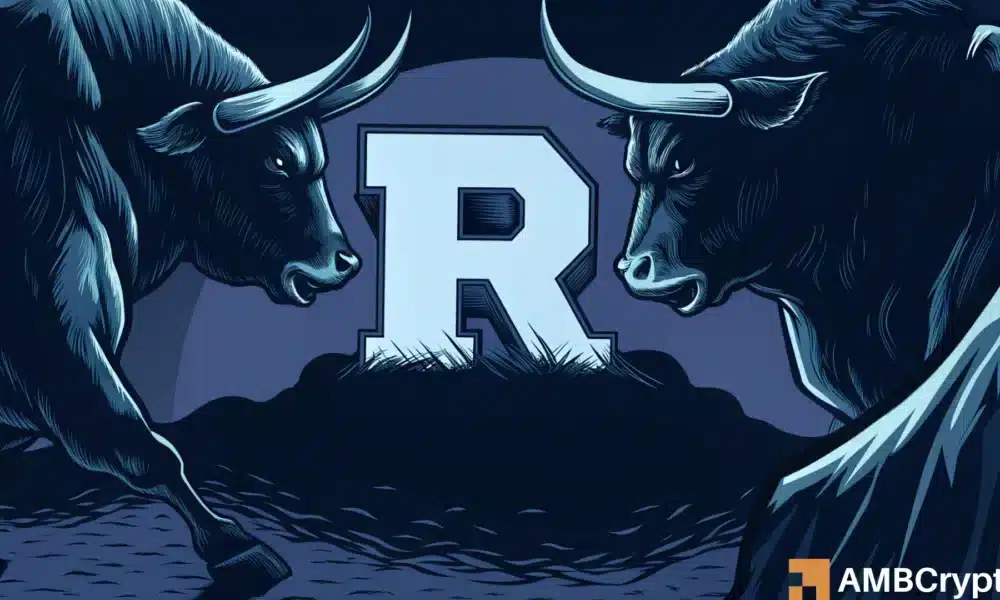1. What is the SEC doing?
Chair Gary Gensler, who long argued that many digital assets have the hallmarks of securities, continues to take an increasingly hard line. On June 6, the agency sued Coinbase Global Inc., the biggest US crypto trading platform, alleging that it illegally listed numerous tokens. In a separate case announced the day before, the SEC alleged that Binance Holdings Ltd. also listed unregistered securities. In those two lawsuits, the SEC designated 19 digital tokens trading on the platforms as securities — a move that was perceived by investors as so potentially damaging that it caused a sharp selloff. The coins’ combined market value slumped by about $23 billion in the week after the first lawsuit was filed.
2. What does it mean for something be a security?
In its most simple form, whether something is or isn’t a security under US rules is basically a question of how much it looks like shares of stock issued by a company seeking to raise money. To make that determination, the SEC applies a legal test that comes from a 1946 US Supreme Court decision. Under that framework, known as the Howey test, an asset can be considered a security — and thus under SEC purview — when it involves investors kicking in money with the intention of profiting from the efforts of the organization’s leadership.
3. Why does calling a token a security matter?
Among other things, it makes running a crypto exchange more expensive and complex. Under US rules, the label carries strict investor-protection requirements for platforms and issuers. That means exchanges would face continuous scrutiny by regulators, which could lead to fines, penalties and, in a worst case, potential prosecutions. Supporters of more regulation believe securities designations would result in more information and transparency for investors because of the SEC disclosure requirements that would apply.
4. Who’s against that approach?
Crypto enthusiasts say that their ventures are decentralized in a way that makes old rules a poor fit. Crypto trading platforms argue that the assets they’re listing should be considered commodities, not securities. In the US, rules governing trading of commodities and their derivatives are focused more on ensuring that companies, producers and farmers can effectively hedge against risks of price swings in commodities.
5. What do the courts say?
There was one decision in July that many in the crypto industry took as a win. In 2020, the SEC sued Ripple Labs Inc. for allegedly raising money by selling the XRP digital token without registering it as a security. The SEC claimed that the company was funding its growth by issuing XRP to investors betting that its value would rise. On July 13, US District Judge Analisa Torres in New York ruled that Ripple’s sales to sophisticated investors met the test for an investment contract because those buyers “would have understood that Ripple was pitching a speculative value proposition for XRP with potential profits.” But the judge said that didn’t apply to the broader public buying crypto on exchanges. Many industry figures and experts took the latter part of the ruling as a possible blow to the SEC’s jurisdiction. Still, the decision is just one district court opinion and is not binding in other parts of the country.
6. What does the crypto community want?
There have been efforts in the US Congress to give the Commodity Futures Trading Commission, the derivatives watchdog, more power to regulate cryptoassets directly. Currently it primarily oversees crypto futures and has the ability to take enforcement action if there’s fraud or manipulation in the underlying market. The CFTC’s regulatory regime is considered less onerous than the SEC’s, so it’s little surprise that the crypto crowd wants to be overseen by the CFTC. In 2022, crypto executives and titans of traditional markets like Citadel Securities joined an industry push behind a bill that would give the CFTC more turf. That effort stalled after the collapse of cryptocurrency exchange FTX, which was one of the most vocal companies pushing for the change. In June this year, two House Republicans released a new proposal that would give the CFTC authority to oversee certain tokens and create a pathway for coins that begin as securities to eventually be regulated as commodities.
7. What is the CFTC’s view?
Chairman Rostin Behnam has pushed back on the notion that the agency is a “light-touch regulator.” At a House Agriculture Committee hearing on June 6, he said the CFTC had brought more than 85 cases that resulted in more than $4 billion in penalties and restitution. He said CFTC rules “are quite extensive, are more prescriptive, and are very specific to protecting customers and protecting markets.” The CFTC was the first of the market regulators to bring an enforcement action against Binance.
8. What coins are and aren’t considered a security?
Beyond Bitcoin — the very biggest cryptocurrency — there’s a lot of ambiguity. US regulators including the SEC agree that Bitcoin isn’t a security. It was started by an unknown person or persons going by the pseudonym Satoshi Nakamoto and doesn’t exist as a way to raise money for a specific project. The second-biggest token, Ether, was deemed not to be a security during President Donald Trump’s administration. A senior SEC official signaled that while it may have started out as a security — the Ethereum Foundation used it to raise money — it had grown into something sufficiently decentralized that it probably no longer was one. But after Ethereum changed to a system in which coins that are “staked” play a role in recording transactions, Gensler said that the fact that staked coins can earn the equivalent of interest might lead regulators to start treating it as a security. The CFTC, however, deems Ether a commodity.
9. Is this an issue elsewhere?
Yes. Globally, different regulators have taken a range of positions on whether to treat cryptocurrencies as securities. The UK’s Financial Conduct Agency regulates digital assets it considers investments that come with rights to repayment or a share in profits, while “payment tokens” like Bitcoin or “utility tokens” that provide access to a service are unregulated. Singapore regulates both types but under different laws. It considers coins that are digital representations of other assets, such as unlisted shares, to be securities. The European Council in May adopted a legal framework for imposing common cryptocurrency rules across all 27 member states. In June, Hong Kong kicked off a new licensing system to regulate crypto exchanges offering trading in tokens like Bitcoin and Ether. The UK is also formulating its own crypto regulations and marketing itself as a welcoming destination for digital-asset firms, despite pushback from reluctant banks.
• A US Treasury Department report on issues related to crypto regulation.
• The Tainted 19: The digital tokens the SEC says are securities.
• More QuickTakes on Bitcoin ‘halving’ and crypto ‘on-ramps.’
• SEC Chair Gensler spoke to Bloomberg Businessweek about crypto.
• The executive order on crypto regulation signed by Biden.
• The UK FCA’s breakdown of regulated vs unregulated tokens.
–With assistance from Ben Bain.
More stories like this are available on bloomberg.com
Credit: Source link















































